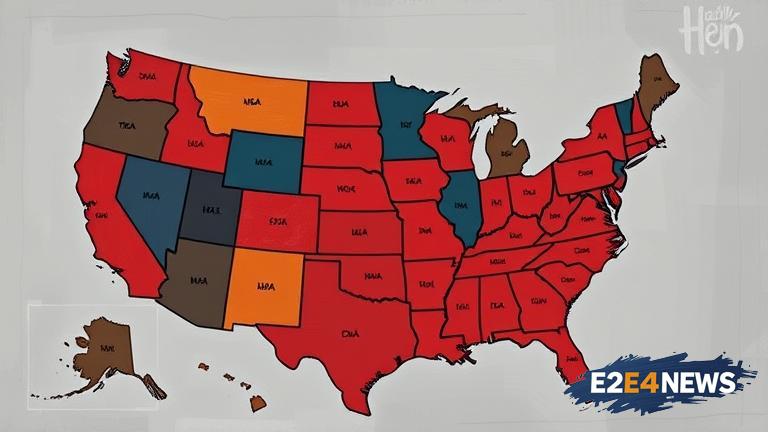The Trump administration has recently announced plans to withhold funds from states that do not enforce English language requirements, a move that has sparked widespread controversy and debate. The announcement was made by the US Department of Education, which stated that states that do not comply with the requirements will face a reduction in federal funding. The move is seen as a major shift in the administration’s approach to language policy, and has been met with criticism from educators, lawmakers, and civil rights groups. The English language requirements in question are part of a federal law that requires states to test students’ proficiency in English in order to receive federal funding. The law, known as the Every Student Succeeds Act, was passed in 2015 and replaced the No Child Left Behind Act. The Trump administration’s move to enforce the requirements more strictly has been seen as a way to promote English language proficiency among students, particularly those who are non-native speakers. However, critics argue that the move will have a disproportionate impact on minority students and those from low-income backgrounds. They also argue that the move will lead to a lack of diversity in schools and will stifle the ability of students to learn in their native languages. The announcement has sparked a heated debate across the country, with some arguing that English should be the official language of the US, while others argue that the move is a form of linguistic imperialism. The US Department of Education has stated that the move is necessary to ensure that students are proficient in English and are able to compete in the global economy. However, educators and lawmakers have argued that the move will lead to a narrow focus on English language proficiency, and will neglect the importance of other subjects such as math, science, and social studies. The move has also been criticized by civil rights groups, who argue that it will have a disproportionate impact on minority students and will lead to a lack of diversity in schools. The National Education Association, the largest teachers’ union in the US, has stated that the move is a form of ‘linguistic discrimination’ and will harm students who are non-native speakers. The American Civil Liberties Union has also criticized the move, stating that it is a form of ‘national origin discrimination’ and will lead to a lack of diversity in schools. The controversy surrounding the move has sparked a wider debate about the role of language in education and the importance of promoting diversity in schools. Some argue that the move is necessary to promote English language proficiency and to ensure that students are able to compete in the global economy. Others argue that the move is a form of linguistic imperialism and will stifle the ability of students to learn in their native languages. The debate has also sparked a discussion about the importance of bilingual education and the benefits of learning multiple languages. Some argue that bilingual education is essential for students to succeed in a globalized economy, while others argue that it is a waste of resources and will lead to a lack of proficiency in English. The controversy surrounding the move has also sparked a discussion about the role of the federal government in education policy. Some argue that the federal government should play a more active role in promoting English language proficiency, while others argue that education policy should be left to the states. The move has also sparked a discussion about the impact of the move on minority students and those from low-income backgrounds. Some argue that the move will have a disproportionate impact on these students and will lead to a lack of diversity in schools. Others argue that the move is necessary to promote English language proficiency and to ensure that students are able to compete in the global economy. The controversy surrounding the move is likely to continue in the coming weeks and months, as educators, lawmakers, and civil rights groups continue to debate the merits of the move. The US Department of Education has stated that it will work with states to ensure that they are in compliance with the requirements, but it is unclear how the move will be implemented and what the impact will be on students and schools. The move has also sparked a discussion about the importance of language access and the need for schools to provide language support services to students who are non-native speakers. Some argue that language access is essential for students to succeed in school and to participate fully in society. Others argue that language access is a luxury that schools cannot afford and will lead to a lack of proficiency in English. The controversy surrounding the move is a complex and multifaceted issue, and it is likely to continue to be debated in the coming weeks and months. The US Department of Education has stated that it is committed to promoting English language proficiency and to ensuring that students are able to compete in the global economy. However, critics argue that the move is a form of linguistic imperialism and will stifle the ability of students to learn in their native languages. The move has also sparked a discussion about the importance of diversity in schools and the need for schools to promote diversity and inclusion. Some argue that diversity is essential for students to succeed in a globalized economy, while others argue that it is a waste of resources and will lead to a lack of proficiency in English. The controversy surrounding the move is likely to continue in the coming weeks and months, as educators, lawmakers, and civil rights groups continue to debate the merits of the move.





